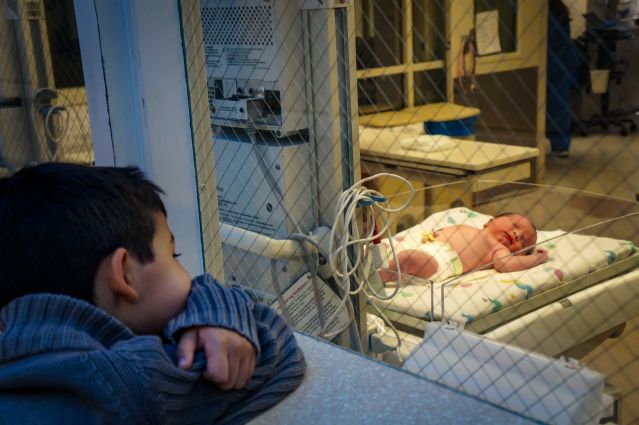Family Dynamics
How to Help Your Older Child After the Baby Arrives
You thought you prepared the older sibling, but now need additional strategies.
Posted March 9, 2023 Reviewed by Michelle Quirk
Key points
- Encourage your child to act out their concerns in pretend play.
- Give positive attention to your older child whenever possible.
- Avoid punishments, including physical punishment, yelling, or shaming.
Nearly every parent who has an additional child after their firstborn worries about how their older child will adjust to this incredibly major change in their family. Many popular books and social media accounts claim to have the method for preparing your child for the birth of a sibling, yet most are not research-based. For example, there is no research study suggesting that the baby give a present to the older child or that parents should not hold the baby when the older child enters the room, yet this is often the only advice parents get.
So, what are some research-backed ways to help an older sibling adjust to having a new baby sibling?

-
Avoid punishments, including physical punishment, yelling, or shaming. Research shows that parents often use more harsh punishments with their older child after the birth of a baby, which is then likely to further increase the older child’s behavior problems. Be careful about how you discipline your older child during the months after having a new baby and avoid punishment. Instead, try to have empathy for the huge disruption to their life and focus on praising by describing and appreciating what they do right rather than punishing what they do wrong. If their behavior isn't safe, take action to protect people and property (such as taking away a toy for a brief period of time if they throw it at their baby sibling, saying, "The truck isn't for throwing" or "I can't let Baby get hurt"). In addition, research finds that, as their children get older, parents tend to discipline the older siblings more than their younger brothers and sisters. You'll want to be careful that this dynamic doesn’t develop in your family.
-
Give positive attention to your older child whenever possible. Research finds that positive attention toward the older child decreases after a new baby is born. You can give your older child positive attention by noticing and enthusiastically describing anything they do “right” instead of only correcting anything they do “wrong.” In particular, describing with appreciation any kind behavior they show toward their infant sibling may be helpful ("You heard Baby crying, and you figured out she wanted her rattle."). You can also provide positive attention by spending special one-on-one time with them doing something they like to do (without distractions or a baby sibling present).
-
Ask the nonbirthing parenting partner or another adult to get more involved. If your child has another involved parent, or any other adult in their lives who is not the birthing parent, encourage them to get more involved in your child’s care during the transition. Research finds that children in heterosexual two-parent families who seem to adjust most successfully to the birth of a second child tend to have fathers who are more involved in their care. Specifically, this study found that when fathers took over more caregiving activities for the firstborn child, the firstborn children tended to show increased positive behaviors.
-
Allow your older child to express feelings of anger and dislike of the baby. Research finds no link between anger and antagonism toward their sibling and the later sibling relationship. It can be very hard to hear your child express these thoughts about their new sibling, but try to validate these emotions ("It's frustrating when the baby knocks over your block tower— you don't like that!"). Remind yourself that it is likely a temporary emotional response that is not predictive of their future relationship with their sibling.
-
Try to provide “fair” treatment when possible. Research finds that when children detect unfair or differential treatment, it may negatively impact the sibling relationship. However, at the same time, it is also important for children to know that “fair” does not always mean “equal.” Explain that it is part of your job as a parent to give each child what they need. For example, you may let the baby sleep in your room because the baby needs to eat at night, while you may let the older child eat grown-up food like pizza and cupcakes. This isn’t “equal” treatment, but it is “fair” based on each child’s needs. Research finds that children are accepting of this type of unequal but fair treatment. This may also mean not favoring the older child over the baby. Although the baby may not be aware of your differential treatment, the older child may be, and it could be unsettling to them. For example, don't praise your older child by putting down the baby. "Only big boys can tie their own shoes. Babies don't know how!" Instead, you can say, "I know who will be teaching Baby to tie her shoes when she gets old enough!" That way, your older child won't feel threatened by the younger sibling, because his self-esteem is not based on the baby being less capable.
-
Encourage your child to act out their concerns in pretend play. Research finds that, when older siblings acted out their concerns in pretend play, they were more likely to have positive interactions with their baby sibling at 6 months. You can get them started by using dolls to represent their parents, themselves, and the baby and modeling a few play schemes for them first. For example, pretend to be the older sibling doll and act out a scenario where the parents do not have time to help her with something because the baby is crying.


